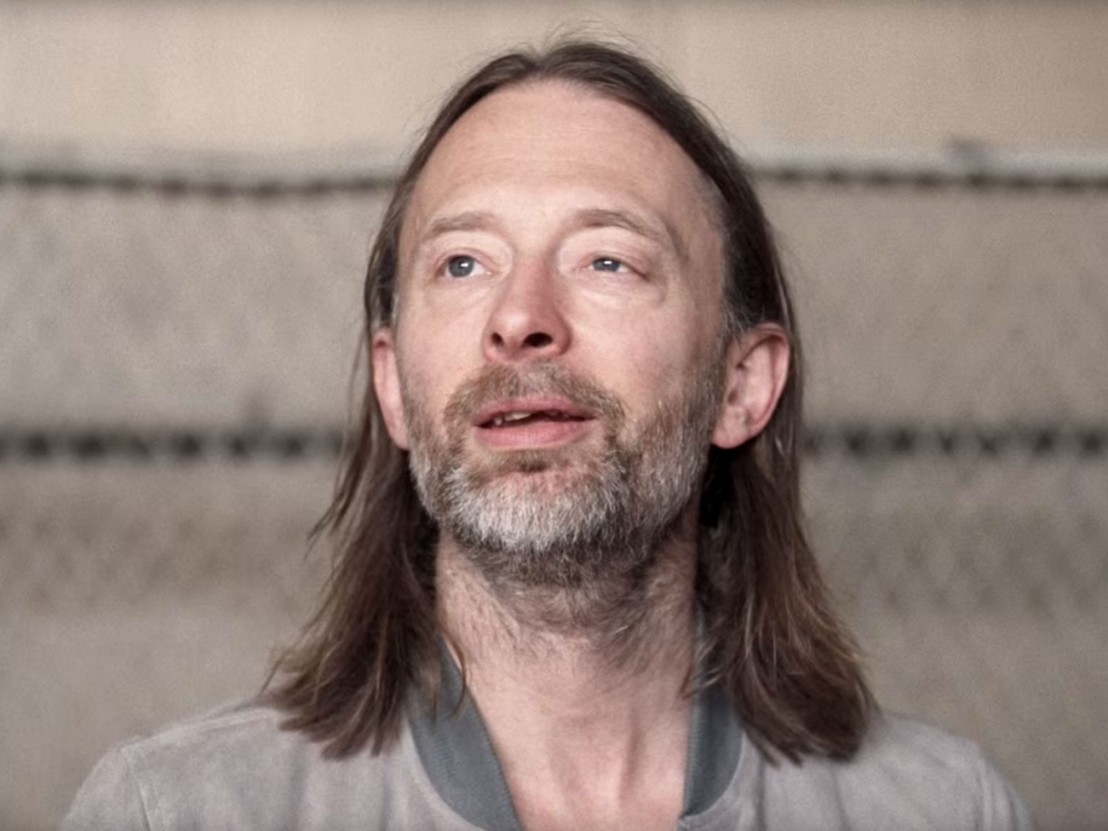
Videology is a new column that looks at music videos through the lens of movies while exploring the crossover between the two mediums.
Paul Thomas Anderson’s collaborations with Radiohead guitarist and keyboardist Jonny Greenwood have resulted in singularly evocative sequences in There Will Be Blood and The Master, brooding films in which the repetition of Greenwood’s has an almost hypnotic effect.
The director has teamed up with Radiohead again for their latest video ‘Daydreaming’, consisting of Anderson’s camera tracking a grizzled Thom Yorke moving walking through one door after the other, changing location without explicit reason. Wherever he walks, Yorke looks dissatisfied, in search of something that seemingly cannot be articulated. He is directionless, and yet we still want to follow him. Each doorway is not so much an opportunity, but a missed chance to escape.
He enters and exits so many doors – even ones that explicitly say “exit” – and finds nothing in them. In this sense the video evokes Jean-Paul Sartre’s ‘No Exit’, which plays with the very ideas of consciousness and existential dread. There are other people in the places where Thom Yorke walks, but he barely looks at them, and they barely look at him. Maybe it really is Hell.
Paul Thomas Anderson has dipped his toes into music video making several times before, working with Fiona Apple on ‘Hot Knife’ in a collaged style, and Michael Penn on ‘Try’, whimsically playing with self-image and more tracking shots. Anderson has proved that his style is malleable, and yet it is always instantly recognisable. His authorial voice is present again in this work, but as a collaborative component with the musician, Penn’s angst melding with Anderson’s innovativeness and Apple’s frustrated eroticism with Anderson’s subdued sexuality.
The Escher-esque quality to ‘Daydreaming’, which recalls Spike Jonze and Charlie Kaufman’s Being John Malkovich. We watch Yorke, his stringy hair swaying from side to side, trapped in a world with endless paths that lead only to constructed ideas of happiness: family, success, fulfilment. Yorke finds purity and solace nowhere, and he sings, “And it’s too late, the damage is done.” Even emptiness seems constructed, and that desire for something organic, authentic is but a daydream.
Published 9 May 2016

By Kyle Turner
Watch the provocative short for the singer/songwriter’s new single ‘Needed Me’.

The prodigiously talented Inherent Vice director reveals what makes him tick.

What Jonny Greenwood did on his holidays makes for rousing cinematic statement.